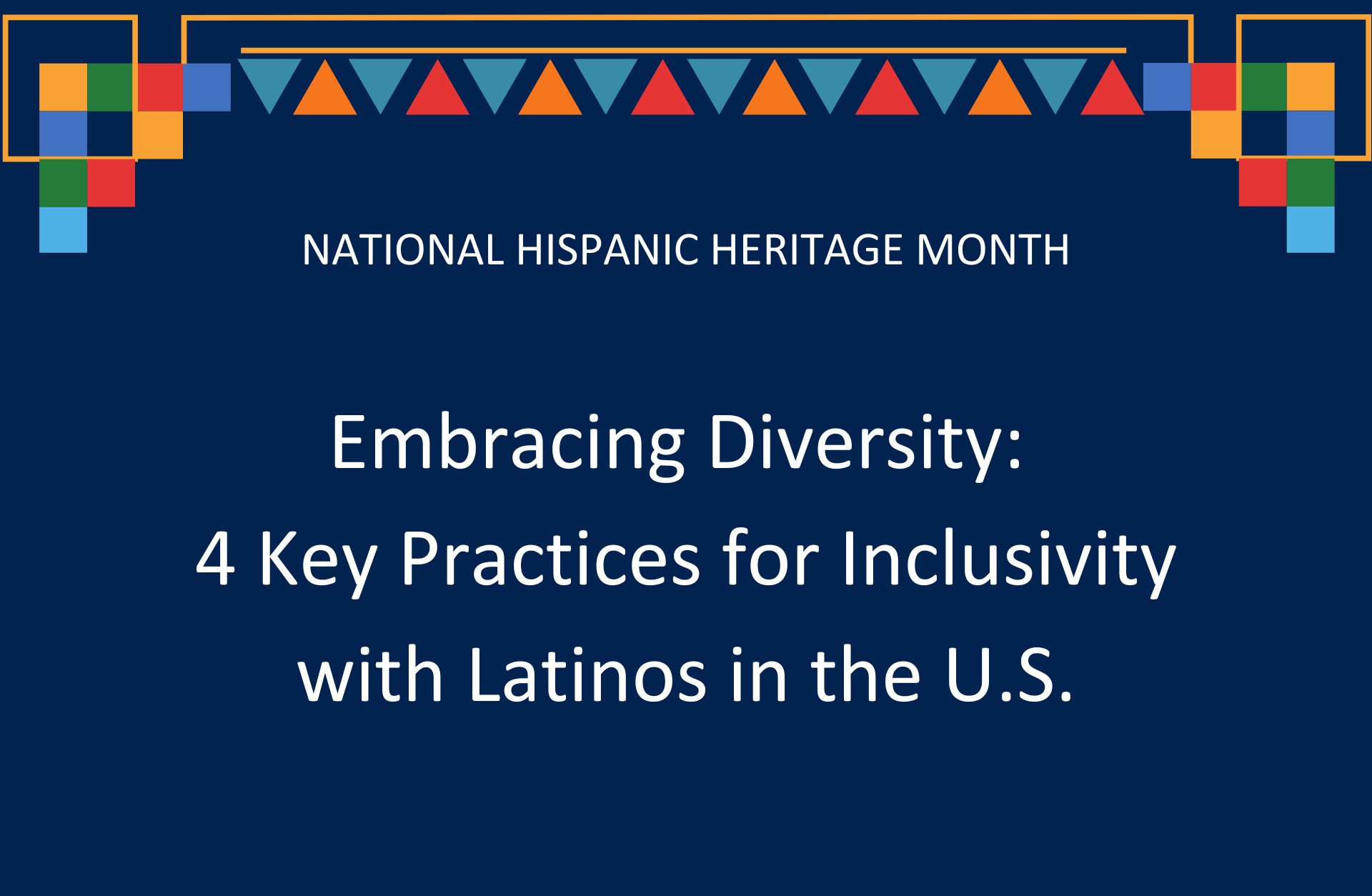
Written By: TMSA DEI Taskforce | Sep 18, 2024 10:43:08 AM
Does where we come from define who we are? While it certainly contributes to our identity, it's just one crucial episode in a broader story that includes our personality, experiences, family upbringing, education, and many other aspects that shape each person uniquely. Have you ever considered how understanding the complete background of an immigrant or non-American person can make them feel included and respected when they are with you? This article provides practical insights for creating a healthy and empathetic environment to foster stronger relationships at work, with friends, and in all interactions with people from other countries.
Over hundreds of years, the United States has evolved into a country that welcomes people from all continents. This diversity enables Americans to easily interact with individuals from varied backgrounds. However, recognizing and understanding the nuances of people's experiences and origins—acknowledging their personal journeys while looking beyond them—can often facilitate the development of more respectful and empathetic relationships.
This challenge is particularly relevant with Latin Americans, whose migration to the United States has significantly increased in recent years. Between 2010 and 2020, the Hispanic or Latino population grew notably by 23%, surpassing other demographic groups, according to the U.S. Census Bureau. With this growth, you may frequently have opportunities to interact with individuals from these communities in various settings, both at work and beyond. While the best advice we can give is to take some time to get to know a Latino before saying something that could offend, here are four ideas on how to foster respectful conversations and make them feel valued and included:
If you hear someone speaking in Spanish or with a particular accent, it’s important to avoid assuming that they are Mexican. Given its proximity and high immigration rates, Mexico is just one of the 33 countries of Latin America that include nations from South America, Central America, and the Caribbean. In fact, the main Latin populations in the United States come from Puerto Rico, Cuba, El Salvador, the Dominican Republic, Guatemala, and Colombia. Recognizing these diverse origins can make individuals feel more comfortable discussing their backgrounds.
You can innocently make assertions based on stereotypes or have expectations of a person based on their origin. Forming opinions about someone based on these ideas can lead to comments that make them feel uncomfortable. Here are some examples:
Cultural traits cannot be generalized. Each individual has their own unique personality. You might encounter some people who are spontaneous, loud, and overly expressive, others who are reserved and even shy, and some who feel most comfortable engaging in balanced conversations with familiar individuals. In a work context, proactively understanding each person can help establish appropriate strategies for communicating with them and facilitate teamwork.
Some Latinos speak English very well! Avoid expressing surprise when you meet someone who does. A person's origin doesn't necessarily dictate their language skills.
Not all of them are following the American dream. According to the Pew Research Center, 4 in 10 Latinos have received expressions of support for being Hispanic or Latino. The reality is that a Latino living in the United States is not necessarily there because they lacked opportunities in their country or do not feel proud of their origin. Avoid assuming that this person's nationality is a problem for them.
Think carefully about the words you choose when describing someone from another background. Avoid making jokes about the words they use or their accent, as this can make them feel excluded. Additionally, before saying something you think is a compliment, consider how it might be interpreted. Review these examples:
"I was surprised! You don't look or act like a Latino." This statement could confuse the person. What does it mean to look or act like a Latino? Does this comment reflect any prejudice about people from Latin America? Is it good or bad that I don't fit the stereotype of a Latino?
"I really like you! Not like any other people I've met from your country." This could imply that you had a prejudice against them when you first met.
Asking about their culture and history, and listening authentically to deepen your understanding, can lead to more successful interactions. Here are some examples that would be appreciated by Latinos and would express your respect and appreciation for their origins:
Know special dates in their country: Just as July 4th is an iconic date in the U.S., every country has significant celebrations. It’s meaningful if you remember and celebrate these dates with your Latino colleague. For instance, a Mexican will appreciate it if you don’t confuse Cinco de Mayo, when is commemorated the Battle of Puebla, with their Independence Day, which is celebrated on September 16th.
Identify notable personalities from their country: Being able to discuss sports or the arts by acknowledging these prominent figures can be very meaningful. For example, since these individuals have gained international recognition for their outstanding careers, an Argentine will appreciate talking about Lionel Messi; a Colombian will enjoy discussing music by Shakira; and a Cuban will be pleased to talk about Ana de Armas's movies.
If you have unintentionally engaged in practices that might be uncomfortable for someone from a Latin background, don’t worry! The good news is that now you have the context to improve your interactions with Latinos. Additionally, by implementing these practical suggestions, you not only contribute to a more inclusive society but also help increase this community’s access to new opportunities!
Tags:

By Andrew Gulovsen, Director of Business Development, TranStrategy Partners, Inc. Do your employees truly WANT the job or position they have? Do they wake up excited about the work that they will...